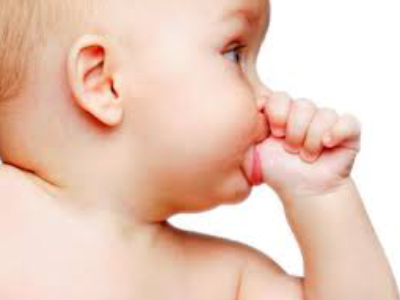 |
Thumb SuckingSucking is a natural and normal desire and need for the infant. Satisfaction is considerable during the first year of life during sucking and shouldn’t be discouraged. Controversy exists concerning whether a thumb or pacifier is best, but the decision is up to the parents, or in many cases, the infant. Should a pacifier be selected it should meet the following requirements:
|
| A thumbsucking habit should not be of concern prior to 4-5 years of age. Often peer pressure from other children will result in termination of the habit. The child should never be punished, scored, ridiculed or belittled by the parents in attempt to stop the habit. A positive approach is always best. The habit becomes a concern when the permanent teeth erupt or a severe deformity develops. Dr. Merritt can offer suggestions to help terminate a damaging thumbsucking habit. | |
Dental InjuriesFalls, bumps and bruises are a normal part of he growing-up process of infants and young children. Quite often, between 12-18 months of age as the infant learns to walk, unsteadiness leads to injuries of the mouth and teeth when the infant falls against furniture, stairs, sidewalks and the like. The resulting dental injury may be a minor laceration, a laceration combined with a fractured tooth, or a tooth which is pushed up into the gum. Any injury causing bleeding that doesn’t stop readily or that results in tooth fractures or teeth being intruded should be evaluated by our office. |
|
We can provide the following information related to the injury:
|
|
